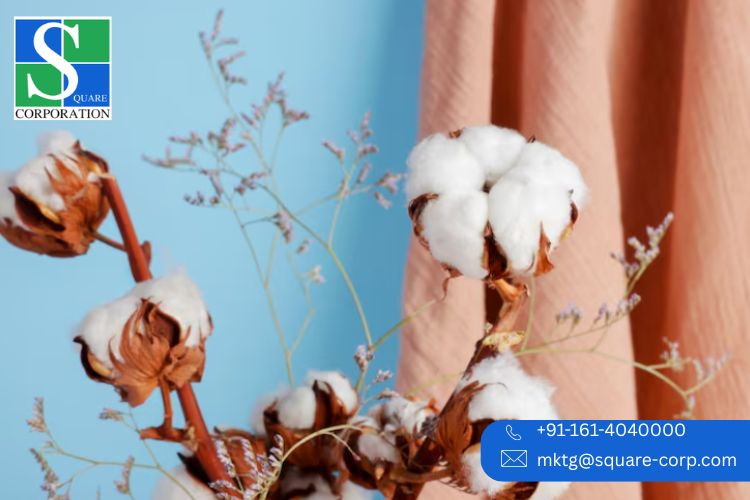Can sustainability and scalability truly go hand in hand? In India’s cotton heartlands, the answer is a confident “yes.” A quiet revolution is unfolding as thousands of farmers transition toward eco-friendly cultivation methods, creating ripples of impact across the textile supply chain. Today, the spinning mills in india are sourcing cleaner, greener, and traceable cotton that’s redefining global apparel manufacturing.
The Rise of Sustainable Cotton in India
India, already the world’s largest producer of organic cotton, contributes nearly half of the global supply, according to Textile Exchange. But the story goes beyond numbers. What began as a small farmer-led movement in Gujarat and Madhya Pradesh has now evolved into a national commitment to sustainability — connecting soil health, ethical trade, and industrial innovation.
For B2B stakeholders—textile manufacturers, exporters, and fashion brands—this shift isn’t just about ethics; it’s about future readiness. With international regulations tightening around carbon footprint and sustainability metrics, sourcing organic cotton from India offers both compliance and conscience.
What Makes India’s Organic Cotton Model Successful?
- Regenerative Farming Practices: Farmers rely on compost, crop rotation, and natural pest control, restoring soil vitality without synthetic inputs.
- Farmer Empowerment: Certification programs and fair-trade initiatives ensure better pricing and livelihood security for rural communities.
- Technology in Agriculture: From soil moisture sensors to drone-assisted mapping, modern organic farms are blending ancient wisdom with new-age tools.
Building a Greener Textile Supply Chain
The transition from cotton boll to finished fabric is no longer just about production speed—it’s about environmental integrity. Indian textile industries are weaving sustainability into their operations, ensuring every stage—from ginning to dyeing—reduces its ecological footprint.
Forward-thinking players, including several wool yarn manufacturer and textile processors, are adopting closed-loop systems, renewable energy, and zero-liquid discharge technologies. These innovations are transforming India into a reliable, sustainable sourcing hub for global brands looking for both scale and ethics.
How Organic Cotton Impacts Global Business Partnerships
Organic cotton isn’t just a “green” choice—it’s a strategic business decision. For international buyers, India’s organic ecosystem ensures consistent quality, reliable certifications, and scalable volume.
- Traceability: Transparent supply chains with digital tracking ensure authenticity from farm to fashion floor.
- Brand Differentiation: Ethical sourcing adds measurable value to sustainability-conscious brands.
- Long-Term ROI: Reduced dependency on chemical inputs and better soil health stabilize production costs.
Partnerships that Nurture the Earth
At the heart of this movement are India’s organic cotton farms, which now collaborate directly with exporters and eco-friendly apparel houses worldwide. These partnerships are not transactional—they’re transformational, focusing on long-term soil health, biodiversity, and farmer well-being.
Interestingly, even major fabric suppliers in india are investing in backward integration—working hand-in-hand with farmer clusters to secure sustainable cotton while ensuring fair trade practices. It’s a win-win: global buyers get reliable quality, and farmers get recognition for their contribution to climate-positive manufacturing.
Key Sustainability Trends Emerging from India’s Cotton Belt
- Growing adoption of blockchain for fiber traceability and ethical verification.
- Expansion of organic cotton cultivation to semi-arid regions using water-efficient techniques.
- Integration of carbon farming initiatives aligned with UN SDG targets (sdgs.un.org).
FAQs: India’s Organic Cotton and Sustainable Growth
1. Why is India leading in organic cotton production?
India’s diverse climate, traditional farming knowledge, and strong export networks make it ideal for organic cultivation and sustainable textile production.
2. How do organic cotton farms benefit businesses globally?
They ensure traceable sourcing, meet global sustainability standards, and offer cost advantages due to India’s efficient supply chain infrastructure.
3. Are organic cotton fabrics as durable as conventional cotton?
Yes. Organic cotton fibers are naturally strong and retain better breathability since they’re not chemically treated during growth or processing.
4. What certifications should buyers look for when sourcing organic cotton from India?
Look for GOTS (Global Organic Textile Standard) and Fairtrade certifications, both ensuring environmental and ethical compliance throughout the process.
Also Read: Cotton Thread vs Synthetic Thread: An Industrial Approach
Final Thoughts
Sustainable growth from India’s organic cotton farms isn’t a passing trend—it’s a paradigm shift. From rural soil to global storefronts, every bale of cotton tells a story of regeneration, resilience, and responsibility. For businesses that value purpose-driven growth, India’s organic ecosystem offers a partnership that truly nurtures the planet while powering profit.
Blog development Credits:
This blog was developed and researched by Square Corporation, leveraging advanced AI tools and optimized for SEO and content quality.





